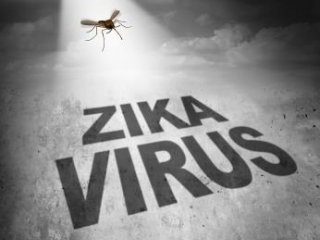Posted September 6th, 2016
By Kris Powers
Those of us in Florida and all the way up the east coast recently felt the effects of Hurricane Hermine. In Florida, now that the storm has moved on, we are left with concerns about the spread of the Zika virus from the standing water left behind.
Any area with standing water creates a prime habitat for mosquitoes to lay their eggs - raising the risk of spreading the Zika outbreak, which has hit small pockets of Miami-Dade County in the southern part of the state.
Hours after Hurricane Hermine made landfall in Florida, Gov. Rick Scott urged the public to remove any standing water to help stop the spread of the mosquito-borne Zika virus.
"It is incredibly important that everyone does their part to combat the Zika virus by dumping standing water, no matter how small," Florida Governor Rick Scott said in a news conference. He also reminded residents to “remember to wear long sleeves and bug repellent when outdoors.”
The CDC has stated that it does not expect a boom in Zika cases in the wake of Hermine as floodwaters should wash away any existing larvae populations. They do agree that, as the flooding settles, mosquito populations will increase because of the large amounts of standing water left behind. However the CDC is quick to reassure that new adult mosquitoes do not carry viruses, like Zika, until they bite an infected animal or person.
"Natural disasters in the continental United States have rarely been accompanied by outbreaks of viruses spread by mosquitoes," Dr. Ben Beard from the Centers for Disease Control and Prevention (CDC) said in a statement to weather.com.
A few weeks ago, when flooding hit many parts of Louisiana, health experts were closely watching, as there were concerns that a Zika or West Nile virus outbreak could be caused by the standing waters left behind. However, according to reports, since the floods began in Louisiana, there has not been a single case of a resident infected locally by Zika in the areas affected by flooding.
It's important to note that in the aftermath of Hurricane Katrina, the CDC did see a rise in West Nile virus cases. But data shows that the spike occurred because there were so many people outside for such a long time because of the widespread destruction.
Even if a tropical system isn't responsible for a spike in Zika cases, there are bound to be mosquitoes in areas where standing water is located. This means that anyone could be exposed to bites.
"Stock up on mosquito repellant, because you might find yourself in a situation where you're going to be exposed to the elements," said Dr. Nancy Troyano, an entomologist and Director of Technical Education and Training for Rentokil Steritech. "You might need to evacuate to a place that's not protected, or you might be in that storm cleanup situation post-hurricane."
Learn more about the Zika virus, including transmission, symptoms, diagnoses, treatment, risks, and prevention, with Ed4Career’s FREE Zika course. The goal of the course—and the reason it is being offered to the public free of charge by Ed4Career—is to help educate the general population to reduce the infection rate and minimize its impact as a public health emergency.
Access the free course here: https://Ed4Career.com/zika
Sources:
https://weather.com/health/news/zika-virus-hurricanes-florida-gulf-coast
http://www.businessinsider.com/hurricane-hermine-intensifies-zika-fears-as-it-pounds-florida-2016-9





